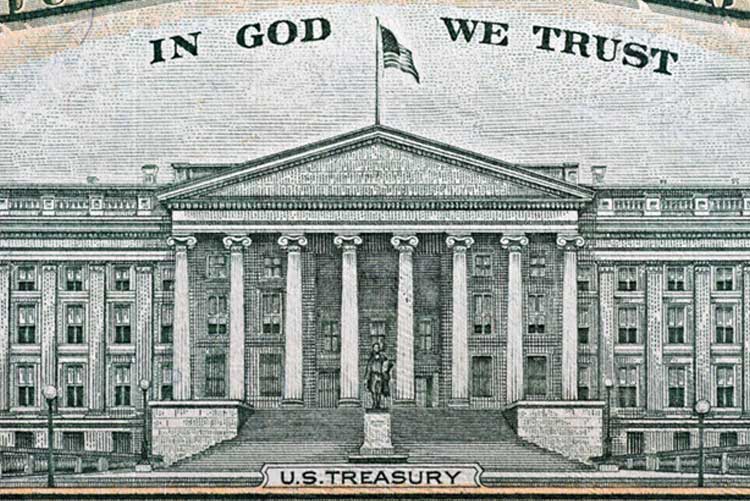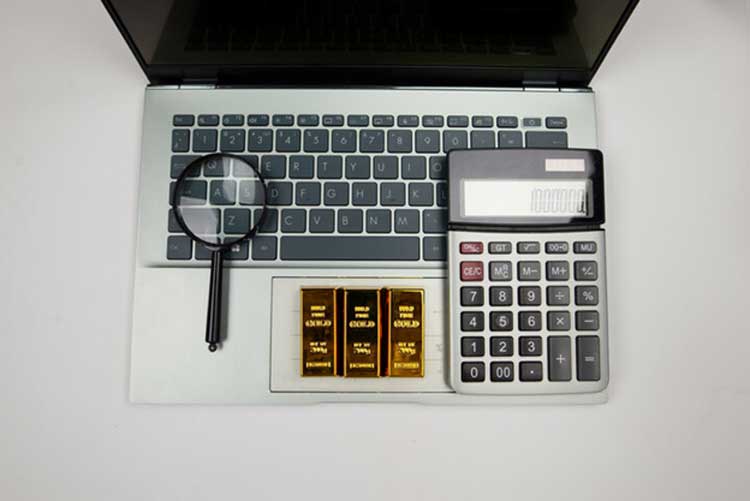
E-mini futures and micro mini futures are integral components of the futures market, providing traders with opportunities to participate in various financial instruments with reduced contract sizes compared to standard futures contracts. In this comprehensive guide, we’ll delve into the specifics of e-mini futures and micro mini futures, exploring their contract sizes, trading hours, exchanges, historical context, and their significance in the world of futures trading.

E-Mini Futures Trading
E-mini futures are a type of futures contract that represents a fraction of the value of a standard futures contract. They were introduced to make futures trading more accessible to individual traders and investors. E-mini futures contracts are traded electronically on regulated exchanges, providing liquidity and transparency to market participants.
Contract Sizes and Exchanges
E-mini S&P 500 Futures (ES):
- Contract Size: The E-mini S&P 500 futures contract represents 50 times the value of the S&P 500 stock index.
- Trading Hours: Trading for E-mini S&P 500 futures typically begins on Sunday at 6:00 p.m. Eastern Time (ET) and continues until Friday at 5:00 p.m. ET, with daily trading halts from 4:15 p.m. to 4:30 p.m. ET.
- Exchange: The E-mini S&P 500 futures contract is primarily traded on the Chicago Mercantile Exchange (CME), one of the world’s largest futures exchanges.
E-mini Dow Futures (YM):
- Contract Size: Each E-mini Dow futures contract represents 5 times the value of the Dow Jones Industrial Average.
- Trading Hours: Similar to E-mini S&P 500 futures, trading for E-mini Dow futures starts on Sunday at 6:00 p.m. ET and concludes on Friday at 5:00 p.m. ET, with daily trading halts from 4:15 p.m. to 4:30 p.m. ET.
- Exchange: E-mini Dow futures are traded on the Chicago Board of Trade (CBOT), which is also part of the CME Group.
E-mini Nasdaq 100 Futures (NQ):
- Contract Size: E-mini Nasdaq 100 futures represent 20 times the value of the Nasdaq 100 stock index.
- Trading Hours: Trading hours for E-mini Nasdaq 100 futures align with the other E-mini contracts, starting on Sunday at 6:00 p.m. ET and ending on Friday at 5:00 p.m. ET, with the same daily trading halts.
- Exchange: These futures are traded on the CME.
E-mini Russell 2000 Futures (RTY):
- Contract Size: Each E-mini Russell 2000 futures contract represents $50 times the Russell 2000 stock index.
- Trading Hours: Like other E-mini contracts, trading hours span from Sunday at 6:00 p.m. ET to Friday at 5:00 p.m. ET, with daily trading halts.
- Exchange: The E-mini Russell 2000 futures contract is traded on the ICE Futures US exchange.
Micro Mini Futures
Micro mini futures are a newer innovation in the futures market, designed to offer even smaller contract sizes than e-mini futures. They cater to traders who may want to start with lower capital or manage risk more precisely. Micro mini futures contracts function similarly to their e-mini counterparts but with reduced contract values.
Contract Sizes and Exchanges
Micro E-mini S&P 500 Futures (MES):
- Contract Size: Each Micro E-mini S&P 500 futures contract represents 1/10th the value of the standard E-mini S&P 500 futures contract.
- Trading Hours: Micro E-mini S&P 500 futures follow the same trading hours as the E-mini contracts, from Sunday at 6:00 p.m. ET to Friday at 5:00 p.m. ET.
- Exchange: These futures are traded on the CME.
Micro E-mini Nasdaq 100 Futures (MNQ):
- Contract Size: Micro E-mini Nasdaq 100 futures represent 1/10th the value of the E-mini Nasdaq 100 futures contract.
- Trading Hours: Trading hours mirror those of the other micro mini and E-mini contracts.
- Exchange: They are traded on the CME.
Micro E-mini Dow Futures (MYM):
- Contract Size: Each Micro E-mini Dow futures contract is 1/10th the size of the E-mini Dow futures contract.
- Trading Hours: Consistent with other micro mini and E-mini contracts.
- Exchange: Micro E-mini Dow futures are traded on the CBOT.
Mini Futures and Micro Futures – History
The concept of mini futures originated from the need to make futures trading more accessible to retail traders and smaller investors. Standard futures contracts often have large contract sizes that may be prohibitive for individuals with limited capital. The introduction of mini futures aimed to address this issue by offering smaller contract sizes tied to major stock indices.
The first mini futures contracts were introduced in the early 1990s. The Chicago Mercantile Exchange (CME) played a significant role in popularizing these contracts, starting with the launch of the E-mini S&P 500 futures in 1997. This groundbreaking contract allowed traders to gain exposure to the performance of the S&P 500 index with a fraction of the capital required for a standard futures contract.
Over time, the success of E-mini futures led to the development of additional mini contracts, including E-mini Dow, E-mini Nasdaq 100, and E-mini Russell 2000 futures. These contracts gained popularity due to their liquidity, flexibility, and lower capital requirements compared to their full-sized counterparts.
Micro mini futures represent the next evolution in the mini futures space. Introduced in the 2010s, micro contracts offer even smaller contract sizes, making futures trading accessible to an even broader range of traders. The Micro E-mini S&P 500 futures, launched in 2019, quickly gained traction among retail traders looking for cost-effective ways to participate in the equity market.
Trading Strategies and Benefits
Both e-mini futures and micro mini futures offer a range of trading strategies and benefits:
- Leverage: Futures contracts are inherently leveraged instruments, allowing traders to control a larger position with a relatively smaller amount of capital. E-mini and micro mini futures amplify this leverage effect, enabling traders to potentially magnify their returns (or losses).
- Diversification: E-mini and micro mini futures cover a broad range of asset classes, including stock indices, commodities, and currencies. This diversity allows traders to create diversified portfolios and manage risk more effectively.
- Liquidity: The popularity of e-mini and micro mini futures ensures ample liquidity in these markets. This liquidity facilitates seamless trade execution and tighter bid-ask spreads, reducing trading costs for market participants.
- Risk Management: Futures contracts are often used for risk management purposes, allowing traders to hedge against adverse price movements in the underlying assets. E-mini and micro mini futures provide flexible hedging strategies for portfolio protection.
- Speculation: Traders can also use e-mini and micro mini futures for speculative purposes, taking advantage of price fluctuations in the underlying markets to generate profits.
E-mini Gold Futures, E-mini Silver Futures, and Micro Mini Futures are vital components of the precious metals market, offering traders exposure to gold and silver prices with smaller contract sizes compared to standard futures contracts. In this detailed exploration, we’ll delve into the specifics of E-mini Gold Futures, E-mini Silver Futures, and Micro Mini Futures, covering their contract sizes, trading hours, exchanges, trading strategies, historical context, and their significance in the precious metals trading landscape.
E-Mini Gold Futures
E-mini Gold Futures are futures contracts that allow traders to speculate on the price of gold without the need to physically own the metal. These contracts are traded electronically on regulated exchanges, providing liquidity and transparency to market participants.
Contract Size and Exchange
- Contract Size: Each E-mini Gold Futures contract represents 50 troy ounces of gold.
- Exchange: E-mini Gold Futures are primarily traded on the Chicago Mercantile Exchange (CME), one of the world’s leading derivatives exchanges.
Trading Hours
- Trading for E-mini Gold Futures typically starts on Sunday at 6:00 p.m. Eastern Time (ET) and continues until Friday at 5:00 p.m. ET, with daily trading halts from 4:15 p.m. to 4:30 p.m. ET.
E-Mini Silver Futures
Similar to E-mini Gold Futures, E-mini Silver Futures allow traders to speculate on the price of silver without physical ownership. These contracts are traded electronically, providing market access to a wide range of participants.
Contract Size and Exchange
- Contract Size: Each E-mini Silver Futures contract represents 1,000 troy ounces of silver.
- Exchange: E-mini Silver Futures are traded on the Chicago Mercantile Exchange (CME), alongside E-mini Gold Futures.
Trading Hours
- Trading hours for E-mini Silver Futures follow the same schedule as E-mini Gold Futures, starting on Sunday at 6:00 p.m. ET and closing on Friday at 5:00 p.m. ET, with daily trading halts from 4:15 p.m. to 4:30 p.m. ET.
Micro Gold Futures
Micro Gold Futures provide traders with exposure to gold prices in a smaller contract size compared to E-mini Gold Futures.
- Contract Size: Each Micro Gold Futures contract represents 10 troy ounces of gold, making them ideal for traders looking for smaller position sizes.
- Exchange: Micro Gold Futures are traded on the CME, providing liquidity and transparency to traders.
Micro Silver Futures
Similarly, Micro Silver Futures offer traders exposure to silver prices with reduced contract sizes compared to E-mini Silver Futures.
- Contract Size: Each Micro Silver Futures contract represents 500 troy ounces of silver, allowing traders to enter positions with lower capital requirements.
- Exchange: Micro Silver Futures are traded on the CME, offering the same benefits as other micro mini and E-mini contracts.
The introduction of E-mini Gold Futures, E-mini Silver Futures, and Micro Mini Futures is part of a broader trend in the futures market to make trading more accessible and flexible for a diverse range of participants. Precious metals like gold and silver have long been sought-after assets for investors and traders due to their historical value, inflation-hedging properties, and safe-haven appeal during times of economic uncertainty.
The creation of E-mini and Micro Mini contracts in the precious metals sector reflects the evolving needs of traders who may prefer smaller position sizes, lower margin requirements, and enhanced risk management capabilities. These contracts have gained popularity among retail traders, institutions, and hedgers alike, contributing to the overall liquidity and efficiency of the precious metals futures market.
E-mini futures and micro mini futures have revolutionized the futures trading landscape, democratizing access to the derivatives market for individual traders and investors. With their smaller contract sizes, electronic trading platforms, and diverse range of underlying assets, these futures contracts offer unparalleled opportunities for profit generation, risk management, and portfolio diversification.
Whether you’re a seasoned futures trader or new to derivatives trading, understanding the nuances of e-mini and micro mini futures can empower you to make informed trading decisions and capitalize on market opportunities. From the history of mini futures to the intricacies of contract sizes, trading hours, and exchanges, this guide provides a comprehensive overview of these essential instruments in the world of futures trading.
Ready to start trading futures? Call US 1(800)454-9572 – Int’l (310)859-9572 email info@cannontrading.com and speak to one of our experienced, Series-3 licensed futures brokers and start your futures trading journey with E-Futures.com today.
Disclaimer – Trading Futures, Options on Futures, and retail off-exchange foreign currency transactions involves substantial risk of loss and is not suitable for all investors. Past performance is not indicative of future results. You should carefully consider whether trading is suitable for you in light of your circumstances, knowledge, and financial resources. You may lose all or more of your initial investment. Opinions, market data, and recommendations are subject to change at any time.
Important: Trading commodity futures and options involves a substantial risk of loss. The recommendations contained in this writing are of opinion only and do not guarantee any profits. This writing is for educational purposes. Past performances are not necessarily indicative of future results.
**This article has been generated with the help of AI Technology. It has been modified from the original draft for accuracy and compliance.
***@cannontrading on all socials.







